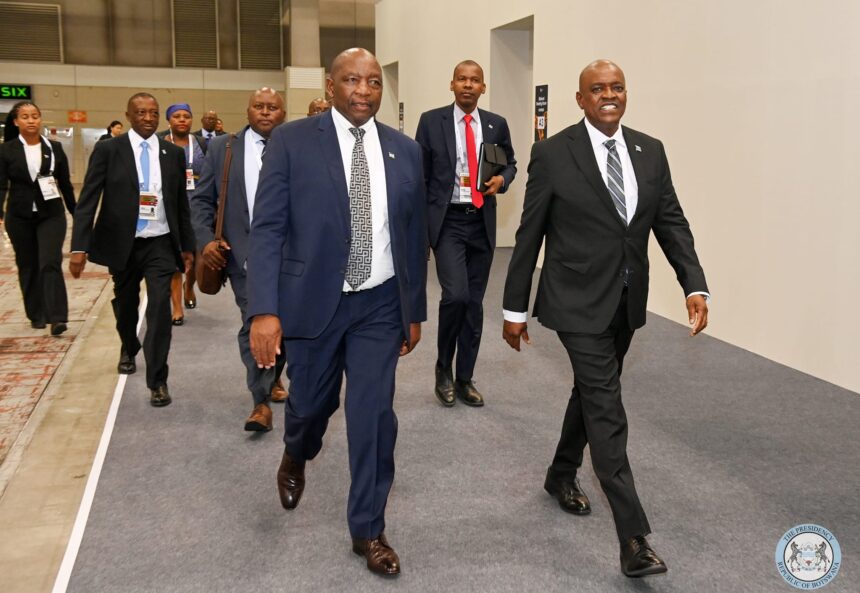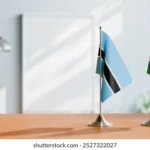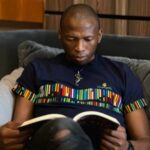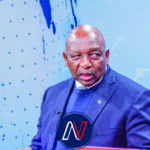Nkopane Mathibeli
“What is liberty without wisdom and without virtue?; it is the greatest of all possible evils for it is folly, vice and madness without tuition and restraint” – Edmund Burke (1729 – 1797)
Despite the age of this observation, its insightful relevance remains timeless, but most importantly, its wholesome appreciation is central if Basotho, like many other Africans, are to correctly determine the root of the almost believable assertion that representative democracy does not work in Africa. It is, however, working well in Botswana and a handful of other countries, as evidenced by tangible advancement. By working well, I do not merely mean the periodic circulation of political elites via elections, but that, coupled with cumulative economic gains made by each group, failing which a summary dismissal by the electorate is guaranteed. Is the Lesotho electorate there yet? Since its inception (1965), it has elected a total of ten regimes, but is there a demonstrable degree of wisdom and virtue in how it goes about doing so, or can we safely say, as Burke observed, that our political right of self-determination has degenerated into an orgy of folly, vice and madness? My intention with this piece is merely to lay a foundation on which to comparatively assess the political wisdom and virtue of both Botswana and Lesotho’s electorate and government as a basis of our long-overdue introspection.
Matekane in perspective
Prime Minister Ntsoakoane Matekane’s premiership was inaugurated on October 28, 2022. Today, it is only weeks away from its third anniversary when the man will be completing 60 percent of his first five-year term. What is becoming clearer everyday is that the advanced age of this term signals the imminence of the next election campaign. As Basotho march closer to yet another chance of making good with their votes, a seemingly simple but rather complex question is whether Matekane will, like Nana Akufo-Addo of Ghana, Macky Sall of Senegal, Mokgweetsi Masisi of Botswana, and lately Lazarus Chakwera of Malawi, be part of the currently raging wave of one-term heads of state/government or not? As a prelude to answering it, I briefly outline the substance of national governance i.e. its politics or more appropriately, its political fibre as reflective in its demeanour or outward expression of intent. This is because every government is first and foremost, a political organism the basis of whose legitimacy and longevity is not only its inherent awareness of needs, concerns and aspirations of the people but also the capacity to satisfy such needs, address the concerns and actualise such aspirations.
It is for this reason alone that though heads of governments like Prime Minister Matekane have a host of advisors, their political advisors are irrefutably the cornerstones of their political fortunes. This is because, irrespective of whether a government’s economic advisor may be the cream of the crop, his/her sound economic blueprint will never bear fruit if the political advice dispensed falls short of nurturing a collective political consciousness, central to which is the national interest. Let us look at Botswana for a perfect example in this regard; an example from which we may extrapolate Matekane’s prospects.
Botswana, politics and nationhood
This example not only made us witnesses to the spectacular fall in Botswana of the Botswana Democratic Party (BDP) after fifty-eight years in power; it also presented two interesting observations. The first was the unravelling of Sir Seretse Khama’s prophecy revolving around the consequence of shifting away from the correct political configuration (so to speak). The second was the political state of mind (political & national consciousness) of Botswana’s electorate and the inclination of its majority to at least participate in politics with a vote in favour of the national interest. Here is how, and first is Khama’s prophecy. In the opening address of his party’s conference on August 27, 1977, he said: “As a party, we have always been guided in our policies and actions by one supreme consideration: the national interest. This must continue to be our supreme consideration for the alternative is to render ourselves irrelevant even before we are booted out of office by the people of Botswana”.
Although the rise of synthetic diamonds played a role in the economic decline of Botswana under the Masisi-led BDP, much of it was a direct outcome of his loss of the established political and policy direction through corruption, hence the party’s fate. Of greater significance, there was the swift and history-making political response of the Batswana. Seemingly without a second thought, they not only revoked the BDP’s long granted privilege of overseeing Botswana’s governance and development trajectory, they made Masisi the only one-term president of Botswana thus far. This alone speaks to their enviable political consciousness and maturity both of which are direct spin offs of their collective consciousness as a nation. In spite of its (BDP) remarkable political legacy, Batswana did not hesitate to send it packing the moment its leader (Masisi) used it to commit two seemingly unforgivable sins in the political psyche of the Batswana: mishandling the economy and introducing hatred/vengeance into Botswana politics through his unfounded persecution of one of their own (Ian Khama). Can Basotho do the same to Matekane?
Matekane’s political miscalculations
The answer to this question must logically be preceded by an outline of his misgivings which in turn must be placed against the political psyche of Basotho to determine their probable political response. The glaring reality is that viewed through a purely political lens, Matekane’s premiership was from the onset, a rather worrying episode of gross political miscalculations many of which far outweigh those of Masisi. Given the gravity and speed with which his regime churned these miscalculations, only the worst three will do for the purpose of this piece. The first and most significant is that since his tenure began, Matekane has consistently faltered on political accountability as envisaged by question time in the national assembly, specifically by section 27 (Questions without notice) of the National Assembly standing orders. What makes it worse is that through what can best be described as clueless arrogance, his parliamentary majority was mobilised to block an amendment of the same section meant to ensure that he is at least notified beforehand. The ultimate end was to enable him to prepare his answers. What portion of the electorate finds this unaccountability politically delinquent?
The second significant political miscalculation on his part is his regime’s unofficial “amendment” of section 4 of the Public Meetings and Processions Act (titled: conditions on meetings and processions). This it did by ordering the police to demand from applicants, proof of consent from whoever the procession is to deliver grievances; the absence of which nullifies the procession. Thus far, this unofficial amendment has effectively revoked the constitutional right to peaceful assembly. What portion of the electorate see this as politically delinquent? The third serious act of Matekane’s political miscalculation is the arrest, on July 2, of the Member of Parliament and leader of Basotho Covenant Movement (Dr. T’sepo Lipholo) on what many see as a trumped up charge. Its basis is his alleged establishment and training (on a South African farm) a militia meant to forcefully return Lesotho’s conquered territory.
Which way now?
Given the validity of such a historical dispossession of land coupled with the perennial policy/diplomatic hostility of South Africa to Lesotho and most importantly, the denial by the South African Police Service of the existence of such a militia on any farm in the nine provinces it polices, what portion of Lesotho’s electorate may just as was the case with Botswana’s electorate, courtesy of the Masisi–Khama episode, feel that Matekane is unfoundedly vengeful on one of their own and so ought to go for not meeting Lipholo halfway by using the state to drive this issue to its logical conclusion? In conclusion, both our political psyche and national consciousness as Basotho are diametric opposites of those of Batswana because unlike them, more things divide than unite us courtesy of our fractured foundation of nationhood. How do we rectify this; can also nurturing a common consciousness and a political psyche rooted in the national interest work for us; as Basotho, do we have such inherent will and capacity or must we settle for the current reality that our independence is nothing but folly, vice and madness seemingly without tuition and restraint?
Summary
- Since its inception (1965), it has elected a total of ten regimes, but is there a demonstrable degree of wisdom and virtue in how it goes about doing so, or can we safely say, as Burke observed, that our political right of self-determination has degenerated into an orgy of folly, vice and madness.
- As Basotho march closer to yet another chance of making good with their votes, a seemingly simple but rather complex question is whether Matekane will, like Nana Akufo-Addo of Ghana, Macky Sall of Senegal, Mokgweetsi Masisi of Botswana, and lately Lazarus Chakwera of Malawi, be part of the currently raging wave of one-term heads of state/government or not.
- This is because every government is first and foremost, a political organism the basis of whose legitimacy and longevity is not only its inherent awareness of needs, concerns and aspirations of the people but also the capacity to satisfy such needs, address the concerns and actualise such aspirations.

Your Trusted Source for News and Insights in Lesotho!
At Newsday Media, we are passionate about delivering accurate, timely, and engaging news and multimedia content to our diverse audience. Founded with the vision of revolutionizing the media landscape in Lesotho, we have grown into a leading hybrid media company that blends traditional journalism with innovative digital platforms.








